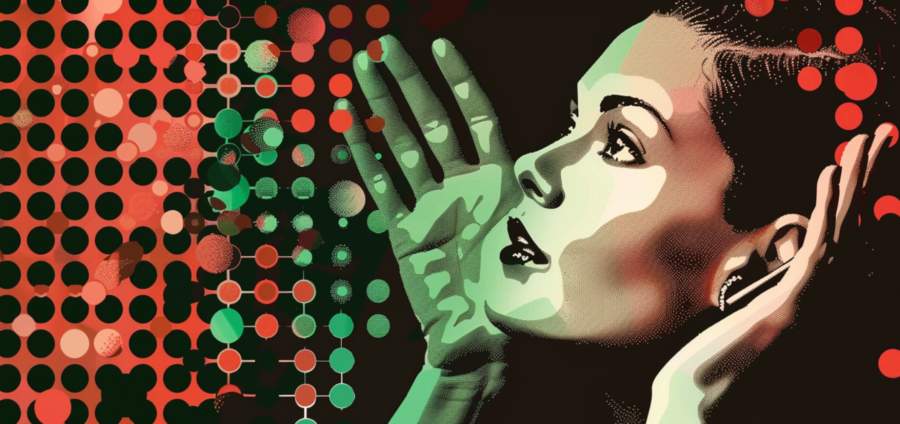Some Signs You Might Be Losing Your Hearing

What Did You Say?
Imagine sitting at a dinner table, nodding along, only to realize you just agreed to take care of your neighbor's pet tarantula. Maybe it's not just selective hearing; perhaps your ears aren't catching what they used to. Hearing loss doesn't announce itself with a grand fanfare. It creeps up, often disguised as everyday annoyances or humorous miscommunications. So, how do you know when it's time to pay attention?Turning Up the Volume...Again
When was the last time you watched TV with someone? If the remote is practically glued to your hand, always finding its way to the volume button, that might be your first clue. You might convince yourself that it's just that the actors are mumbling more these days, but if your neighbors start knocking to share your Netflix subscription, it's probably your ears that need adjusting, not the TV.Missing Out on Small Talk
We all have that one friend who talks a little too softly or perhaps a bit too quickly. If you're constantly asking them to repeat themselves, it might not be their fault. And if you find yourself smiling and nodding during conversations without a clue what's being said, it might be time to consider that your ears aren't as sharp as they once were.Ring-a-Ding-Ding
Hearing loss isn't always about what you can't hear—sometimes it's about what you *can* hear that others can't. If you've started to notice a constant ringing in your ears that nobody else seems to hear, you're not going crazy. Tinnitus is often an early sign of hearing damage. It's like having an unwanted concert playing on repeat in your head, except the band only knows one song, and it's not even a good one.You Say 'Tomato,' I Say 'What?'
Misunderstandings can be funny—until they happen every day. If you're consistently mistaking words and phrases, often with comical results, your hearing might be to blame. For example, thinking someone said, "Let's have lunch," when they actually said, "Let's have a punch," can lead to some awkward situations, especially if you're in a boxing gym.People Seem to Be Mumbling More
You know that feeling when it seems like everyone around you has suddenly developed a habit of mumbling? It's not that the world has collectively decided to speak in low tones; your ears might just be struggling to pick up certain sounds. When conversations start sounding like a Charlie Brown teacher convention, it's a sign that you might be missing out on some crucial details, like whether it was 'bees" or 'fees" that your accountant was talking about.Phone Conversations Are a Struggle
We've all been there—struggling to catch every word in a phone conversation, but if you're finding it increasingly difficult to understand people over the phone, this could be a red flag. Without the visual cues that come with face-to-face communication, hearing loss becomes more noticeable. So, if you're relying on speakerphone and cranking the volume up to max, it might be time to consider that your phone isn't the problem.Social Situations Are Exhausting
Conversations in crowded places like restaurants or parties can be challenging for anyone, but if you find yourself more exhausted than usual after these events, it could be because you're straining to hear. Hearing loss can make it difficult to separate background noise from the conversation in front of you, turning social events into a mental workout. It's not just about hearing; it's about understanding, and if you're left feeling mentally drained, your ears might be working overtime.Wrapping Up: Time to Listen to Your Ears
Hearing loss isn't always dramatic, but it can significantly impact your life. If any of these signs sound familiar, it might be time to give your ears a little more attention. After all, while it's easy to blame mumbly actors, noisy environments, or your friends" poor enunciation, sometimes it's your own hearing that needs a tune-up. Catching hearing loss early can make a big difference, so don't wait until you're babysitting a tarantula to get your ears checked.Article kindly provided by nantwichhearingcentre.co.uk
Latest Articles
- Everyday Walks as Brain Games for Your Dog
- How Light Weights Can Build Serious Strength
- Missing Dental Supplies and What They're Really Telling You
- Rethinking Early Intervention Strategies for Childhood Behavior Support
- Keep Going: The Brain Science of Turning Setbacks Into Momentum
- Designing Movement Routines That Don't Feel Like Exercise
- Chair Yoga Works Wonders For Bodies Of All Ages
- Eyebrows Through the Ages and What They Reveal About Our Faces
- Feeding Plans That Keep Every Pet in Balance
- Hidden Immune Boost Hiding in Plain Sight for Corporate Travellers
- Evening Quiet Isn't Automatic and That's Perfectly Normal
- Quiet Power Makes a Salon Feel Like a VIP Retreat
- Chewing as Meditation and Everyday Calm
- Sleep Deprivation as a Social Problem, Not a Personal Failure
- Why Recovery Rituals Outlast Resolutions and Keep Us Moving Forward
- Desk Job Survival with a Side of Shoulder Rolls
- Why Your Living Room Layout Might Be Causing Your Back Pain
- Why Your Teeth Love Dental Hygienists
- The Hidden Life Skills Buried in Your Workout Schedule
- Why Doing Nothing Might Just Fix Everything
- Nutrition and Dietetics
- Exercise and Fitness
- Meditation and Yoga
- Mental Health
- Women's Health
- Men's Health
- Children's Health
- Senior Health
- Heart Health
- Sleep Health
- Skin Health
- Eye Health
- Dental Health
- Pain Management
- Addiction and Recovery
- Sexual and Reproductive Health
- Alternative Medicine
- Chronic Conditions
- Weight Management
- Occupational Health and Safety
- Public Health
- General Health Tips
- Beauty

